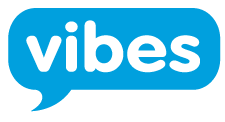Multimedia Messaging Service (MMS) is a standard way to send messages that include multimedia content to and from a mobile phone over a cellular network. Users and providers may refer to such a message as a PXT, a picture message, or a multimedia message. The MMS standard extends the core SMS capability, allowing the exchange of text messages greater than 160 characters in length. Unlike text-only SMS, MMS can deliver a variety of media, including up to forty seconds of video, one image, a slideshow of multiple images, or audio.
Viral marketing or viral advertising is a business strategy that uses existing social networks to promote a product mainly on various social media platforms. Its name refers to how consumers spread information about a product with other people, much in the same way that a virus spreads from one person to another. It can be delivered by word of mouth, or enhanced by the network effects of the Internet and mobile networks.

Mobile phone spam is a form of spam, directed at the text messaging or other communications services of mobile phones or smartphones. As the popularity of mobile phones surged in the early 2000s, frequent users of text messaging began to see an increase in the number of unsolicited commercial advertisements being sent to their telephones through text messaging. This can be particularly annoying for the recipient because, unlike in email, some recipients may be charged a fee for every message received, including spam. Mobile phone spam is generally less pervasive than email spam, where in 2010 around 90% of email is spam. The amount of mobile spam varies widely from region to region. In North America, mobile spam steadily increased after 2008 and accounted for half of all mobile phone traffic by 2019. In parts of Asia up to 30% of messages were spam in 2012.

Direct marketing is a form of communicating an offer, where organizations communicate directly to a pre-selected customer and supply a method for a direct response. Among practitioners, it is also known as direct response marketing. By contrast, advertising is of a mass-message nature.
Mobile content is any type of web hypertext and information content and electronic media which is viewed or used on mobile phones, like text, sound, ringtones, graphics, flash, discount offers, mobile games, movies, and GPS navigation. As mobile phone use has grown since the mid-1990s, the usage and significance of the mobile devices in everyday technological life has grown accordingly. Owners of mobile phones can now use their devices to make photo snapshots for upload, twits, mobile calendar appointments, and mostly send and receive text messages, listen to music, watch videos, take mobile pictures and make videos, use websites to redeem coupons for purchases, view and edit office documents, get driving instructions on mobile maps and so on. The use of mobile content in various areas has grown accordingly.
Mobile marketing is a multi-channel online marketing technique focused at reaching a specific audience on their smartphones, feature phones, tablets, or any other related devices through websites, e-mail, SMS and MMS, social media, or mobile applications. Mobile marketing can provide customers with time and location sensitive, personalized information that promotes goods, services, appointment reminders and ideas. In a more theoretical manner, academic Andreas Kaplan defines mobile marketing as "any marketing activity conducted through a ubiquitous network to which consumers are constantly connected using a personal mobile device".
Upoc Networks was a New York-based mobile phone services provider and carrier aggregator. Upoc was founded in 1999 and has developed mobile community solutions for carriers, consumers, media companies and marketers to communicate via SMS, WAP, voice, MMS, BREW, Java, and other technologies.
An SMS gateway or MMS gateway allows a computer to send or receive text messages in the form of Short Message Service (SMS) or Multimedia Messaging Service (MMS) transmissions between local and/or international telecommunications networks. In most cases, SMS and MMS are eventually routed to a mobile phone through a wireless carrier. SMS gateways are commonly used as a method for person-to-person to device-to-person communications. Many SMS gateways support content and media conversions from email, push, voice, and other formats.
Mobile advertising is a form of advertising via mobile (wireless) phones or other mobile devices. It is a subset of mobile marketing, mobile advertising can take place as text ads via SMS, or banner advertisements that appear embedded in a mobile web site.

Acision was a privately held British mobile communications network infrastructure company engaged in messaging and charging systems that enable popular services such as Short message service (SMS), Multimedia Messaging Service (MMS), mobile internet browsing, mobile broadband, and voicemail. In particular, Acision specialised in providing IP messaging to over-the-top media services and other enterprises.

Social media marketing is the use of social media platforms and websites to promote a product or service. Although the terms e-marketing and digital marketing are still dominant in academia, social media marketing is becoming more popular for both practitioners and researchers. Most social media platforms have built-in data analytics tools, enabling companies to track the progress, success, and engagement of ad campaigns. Companies address a range of stakeholders through social media marketing, including current and potential customers, current and potential employees, journalists, bloggers, and the general public. On a strategic level, social media marketing includes the management of a marketing campaign, governance, setting the scope and the establishment of a firm's desired social media "culture" and "tone."
Bulk messaging is the dissemination of large numbers of SMS messages for delivery to mobile phone terminals. It is used by media companies, banks and other enterprises and consumer brands for a variety of purposes including entertainment, enterprise and mobile marketing.
MoVoxx is a mobile advertising company that places short, interactive ads under opt-in SMS content. MoVoxx provides marketers with access to a mobile audience by partnering with SMS content publishers who send out mass text messages to consumers. MoVoxx uses the ad placement to engage in demographic, contextual and device targeting. The interactive advertisements include SMS Reply, Click to WAP, Click to Video, Click to Buy and Click to Twitter.
Brainshark was a privately held technology company based in Waltham, Massachusetts that provided a sales enablement platform and product suite. Bigtincan acquired Brainshark in August 2021.

Trumpia is an online multi-channel marketing and messaging software provider, offering mobile marketing, email marketing, voice broadcast, instant messaging, and social media marketing tools for businesses, and non-profit organizations.
OpenMarket Inc. is a privately owned subsidiary of Infobip that provides cloud-based mobile messaging solutions to enterprises, including global one-way and two-way SMS, MMS, RCS, short codes, local numbers and text-enabled toll-free messaging solutions. The company is headquartered in Seattle, Washington, United States, with offices in Detroit, London, Sydney, Pune, and Guadalajara.
Voice-based marketing automation (VBMA) refers to software platforms designed for marketing, sales, and support departments to measure, manage, and automate their phone conversations. Marketing departments, sales teams, and support agents use VBMA to initiate, manage, monitor, track, route, record, and report on sales and support phone conversations.

4INFO is an American corporation that measures and tracks media audiences for the targeting of audiences. The company also displays targeted advertisements on mobile devices. The company is currently owned by Nielsen Holdings.

Vibes is privately held company that mobile marketing products and services, such as text message marketing (SMS/MMS), mobile wallet marketing, push notifications, and mobile web experiences. It is based in Chicago, Illinois.

Sinch, formerly CLX Communications, is a telecommunications and cloud communications platform as a service (PaaS) company. Headquartered in Stockholm, Sweden, Sinch also has offices in over 30 cities worldwide, including Atlanta, London, Madrid, San Francisco, Singapore and Sydney.






